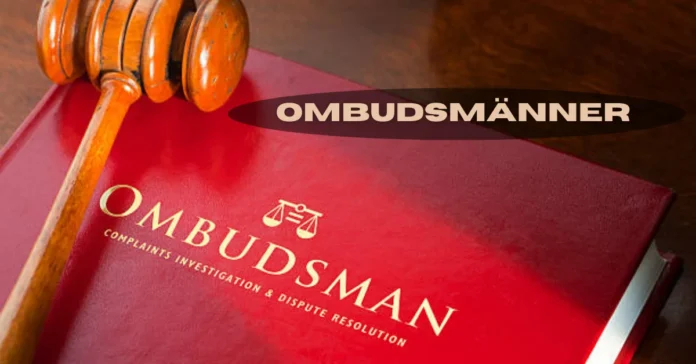The term Ombudsmänner refers to the plural form of ombudsman, a role rooted in accountability, fairness, and advocacy. Ombudsmänner are individuals or offices established to protect citizens, employees, or customers against unfair practices, misuse of authority, or violations of rights. They act as neutral mediators who investigate complaints, resolve disputes, and ensure that institutions remain transparent and just. In a world where trust in systems can often falter, the presence of ombudsmänner provides a safeguard that helps people feel heard and respected, making their role increasingly relevant in today’s complex societies.
The Origins and Evolution of the Ombudsman Role
The concept of the ombudsman originated in Sweden in the early 19th century, where the government introduced this office as a way to oversee public administration and protect citizens from misuse of power. Over time, the model spread across Europe and later to many other parts of the world, adapting to the specific needs of different societies. The plural form, ombudsmänner, highlights how this role has expanded beyond a single office into multiple representatives across various organizations, industries, and government structures. Today, ombudsmänner operate not only in public governance but also in universities, businesses, media, and international organizations.
The Responsibilities of Ombudsmänner
At the core of their work, ombudsmänner investigate complaints fairly and independently. They listen to individuals who believe they have been wronged, analyze the situation impartially, and recommend solutions that promote justice. Their responsibilities may include ensuring that government agencies follow the law, protecting employees from workplace discrimination, or helping students resolve issues within educational institutions. Importantly, ombudsmänner do not act as judges but as mediators who bridge the gap between the individual and powerful systems, ensuring transparency and fairness in decision-making processes.
Ombudsmänner in Modern Governance
In modern governance, ombudsmänner play a critical role in maintaining public trust. As governments become more complex, citizens often face bureaucratic obstacles and feel powerless against large institutions. Ombudsmänner provide an accessible channel through which grievances can be addressed without lengthy legal battles. Their ability to hold institutions accountable not only resolves individual issues but also identifies systemic problems that need reform. By publishing reports, making policy recommendations, and promoting ethical practices, ombudsmänner strengthen democratic values and ensure that leaders remain answerable to the people they serve.
Ombudsmänner in Private Institutions
Beyond governments, many private organizations also appoint ombudsmänner to ensure fairness and transparency within their structures. Universities, for example, rely on ombudsmänner to handle disputes between students and administration, while corporations use them to address workplace conflicts or ethical concerns. In media organizations, ombudsmänner safeguard journalistic integrity by responding to complaints from the public. In each of these settings, the role of ombudsmänner remains consistent: to act as neutral guardians who protect rights and promote accountability.
The Importance of Ombudsmänner in Society
The presence of ombudsmänner highlights society’s commitment to justice, fairness, and trust. They give individuals a voice, especially those who might otherwise feel ignored or powerless. By addressing complaints in a fair and confidential manner, ombudsmänner prevent conflicts from escalating and contribute to a culture of dialogue and resolution. Their work also fosters confidence in institutions, reassuring the public that someone is watching and holding systems accountable. In this way, ombudsmänner not only resolve individual disputes but also contribute to the broader health of democracy, organizational culture, and social harmony.
Conclusion
The role of ombudsmänner continues to grow in significance as societies, organizations, and governments become more interconnected and complex. By providing impartial oversight, they ensure fairness, transparency, and accountability across different sectors. Their function as mediators, protectors, and advocates makes them indispensable in maintaining trust between individuals and institutions. In a world where people seek justice and fairness more than ever, ombudsmänner stand as guardians of integrity, ensuring that no voice goes unheard and no injustice remains unchecked.


